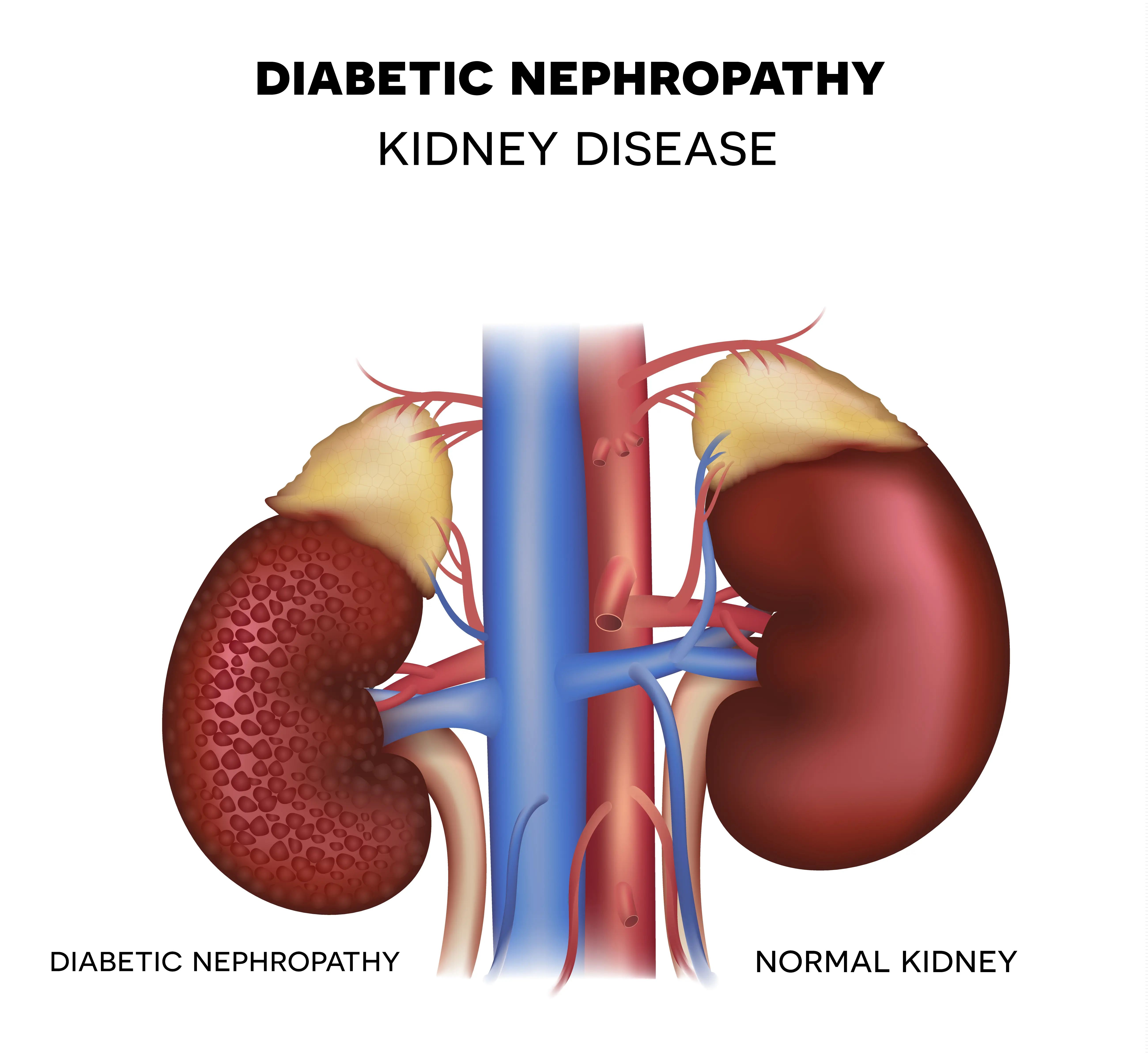Can Nephropathy be Cured?
Sometimes
Depending on the cause, some types of nephropathy may be managed, slowed, or partially reversed, but a cure may not always be possible; outcomes depend on the specific type, severity, and response to treatment

What is Nephropathy?
Nephropathy refers to kidney disease or damage. It can result from various causes, including diabetes, hypertension, and autoimmune conditions. Treatment aims to manage the underlying cause and prevent further kidney damage. Strategies may include medications, lifestyle changes, and, in advanced cases, dialysis or kidney transplantation. Regular monitoring of kidney function is crucial for early detection and intervention.

Clinical Aspects

Characteristics
Kidney disease or damage that impairs kidney function

Symptoms
Fatigue, swelling (edema), changes in urination, elevated blood pressure

Diagnosis
Clinical evaluation, urine tests, sometimes kidney biopsy

Prognosis
Variable, depends on underlying cause

Complications
Kidney damage, potential for complications
Etiology and Treatment

Causes
Diabetes, high blood pressure, autoimmune diseases, infections, genetic factors, medications, toxins

Treatments
Management of underlying cause (e.g., blood sugar control, blood pressure management), medications to control symptoms and complications, lifestyle modifications (diet, exercise)

Prevention
Management of underlying cause (e.g., blood sugar control, blood pressure management), medications to control symptoms and complications, lifestyle modifications (diet, exercise)
Public Health and Patient Perspectives

Epidemiology
Common, various causes including autoimmune disorders

Patient Perspectives
Lifelong management tailored to underlying cause
Please note that the information provided is based on the current understanding of these conditions and treatments may vary based on individual circumstances. Always consult with a healthcare provider for accurate information.
Share: